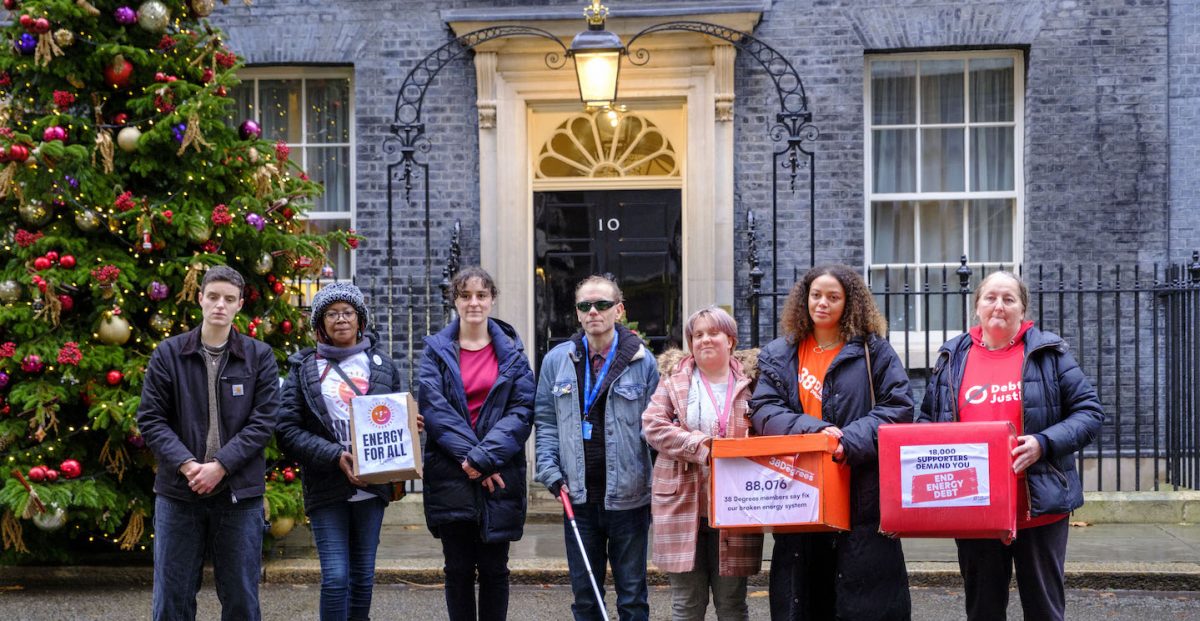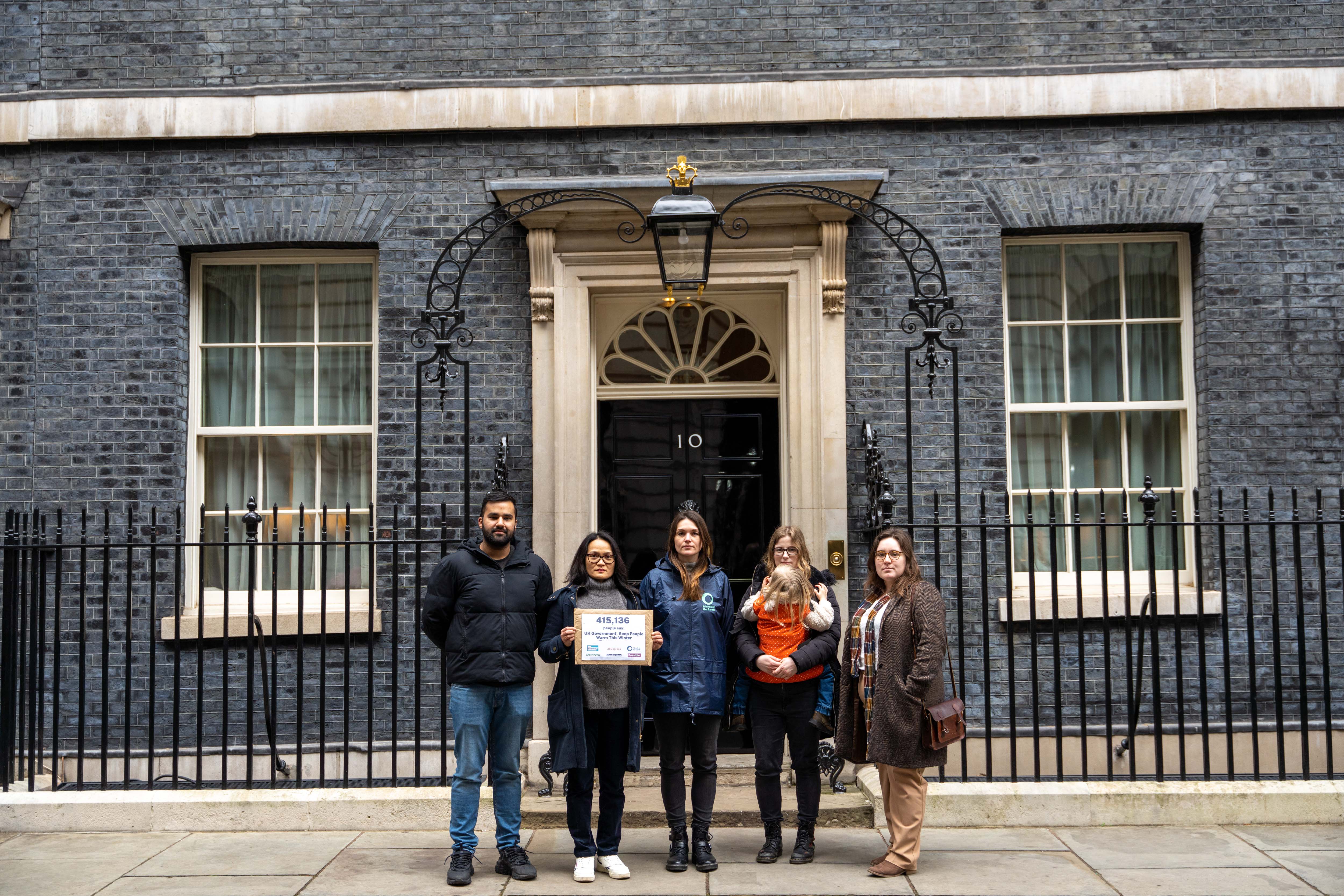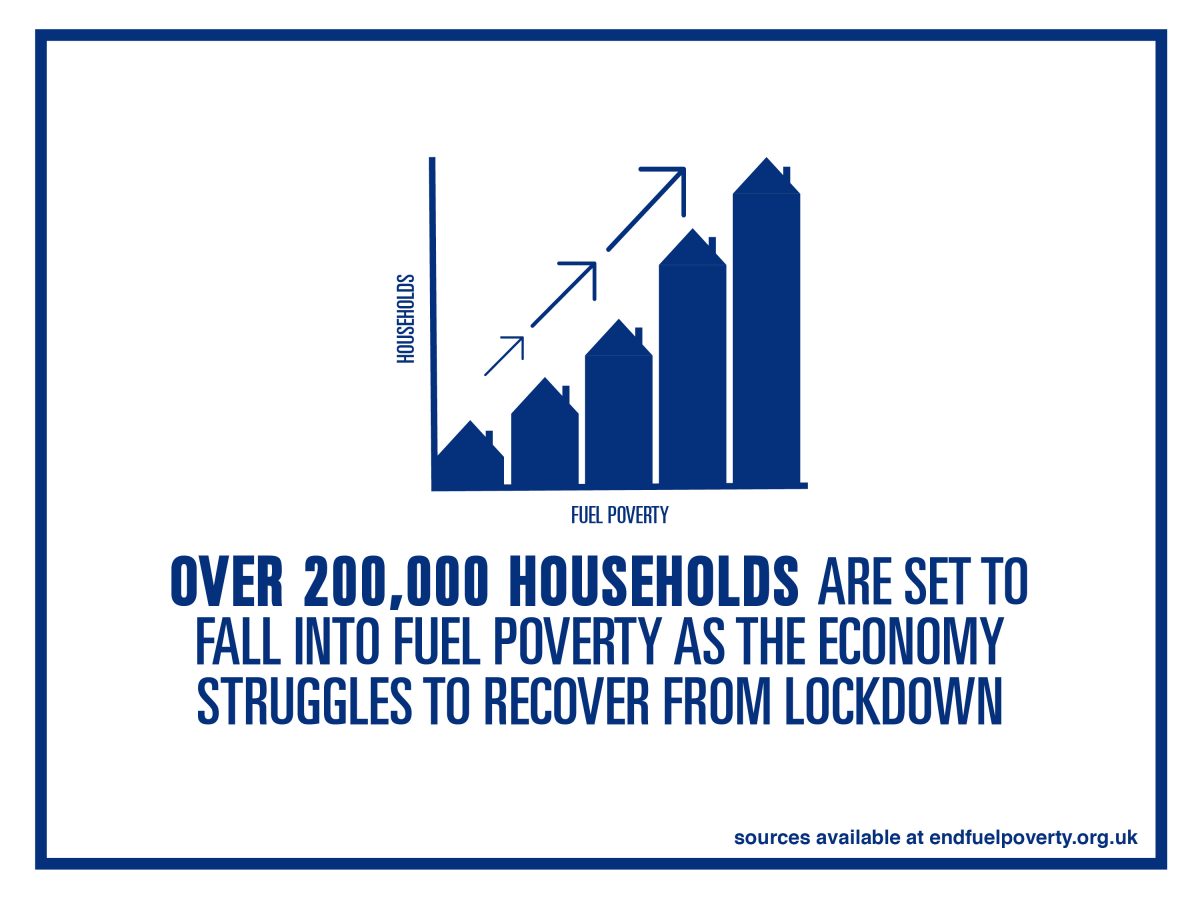New figures reveal that 16% of UK adults (8.3m people) live in cold damp homes, exposed to the health complications that come from living in fuel poverty. [1]
This includes over 1.7 million of the UK’s most vulnerable, according to the latest data from the Warm This Winter campaign.
As well as the most vulnerable being more affected – such as those aged over 75, living with an under 6 year old, or having a preexisting health condition or disability – there are stark differences based on the type of energy bill households have and where they live.
A third of smart meter customers who have a prepayment meter setting (32%) say they live in a cold damp home with 27% of those on traditional PPMs saying the same. Almost a quarter (22%) of standard credit customers are in cold damp homes, yet just 11% of direct debit customers live in such conditions. [2]
Households in London are most likely to be living in cold damp homes, with a quarter (23%) of the capital exposed to such conditions. Londoners are closely followed by people in Yorkshire & Humber (22%), the West Midlands (18%) and the North West (17%) as having the most exposure to dangerous living conditions.
The NHS warns that people with damp and mould in their homes are more likely to have respiratory problems, respiratory infections, allergies or asthma.
Damp and mould can also affect the immune system while living in such conditions can also increase the risk of heart disease, heart attacks or strokes.
Cold homes can cause and worsen respiratory conditions, cardiovascular diseases, poor mental health, dementia and hypothermia as well as cause and slow recovery from injury.
Petitions with over 800,000 signatures have been handed into the Prime Minister calling for more action to bring down bills now, end energy debt and to help end the cold damp homes crisis now facing the country. [3]
Fiona Waters, spokesperson for the Warm This Winter campaign, commented:
“It is no wonder that the public are now signing petitions in droves and pointing the finger of blame for the crisis on Ministers who have failed to act to protect the public from this crisis.
“Instead of help in the form of an Emergency Energy Tariff for vulnerable households and a Help To Repay scheme for those in energy debt, the public will instead be faced with increasing energy bills on 1 January 2024.”
A spokesperson for the End Fuel Poverty Coalition, commented:
“The Government needs to get a grip on the cold damp homes crisis now facing the country, with people spending the festive period in Dickensian conditions and unable to stay warm this winter.
“Without immediate action, the cost of this crisis will be felt by increased demand on the already overstretched NHS.
“Ultimately, a failure to protect people from living in cold damp homes will cost lives.”
Dr Isobel Braithwaite, a health and housing researcher at UCL, said:
“This data shows a shockingly high prevalence of cold and damp homes in the UK, which poses a grave risk to the public’s health. These conditions are severely harming the health of the most vulnerable in society: from young children; people with heart and lung conditions; to older people, and this situation is unconscionable in 2023.
“These impacts are being driven by political choices, and action is urgently needed to address the causes of this health crisis, both to protect vulnerable households with the campaign’s proposed emergency measures, as well as longer-term action with home retrofit schemes.”
Kay Ballard from Debt Justice who was part of the petition hand in said:
“Lack of government support and energy company profiteering means that this Christmas I have a choice between going into debt or living in a cold damp home. It is an impossible choice and only government action can solve the crisis.”
Raymond Bradley a 38 Degrees Supporter who was part of the petition hand in said:
“I feel let down by this Government. Each year I am colder, struggling more and with less support. I am blind and the devices I use to help me get through life daily take a lot of electricity to charge. My partner has health issues that means we HAVE to be warm and we’re choosing between heating, charging the devices that help me live my life and eating. It’s no way to live. All I ask from Rishi Sunak and his Government is to fix this broken energy system.”
Stuart Bretherton from Fuel Poverty Action said:
“Over 660,000 people have endorsed our demand to ensure everyone’s essential energy needs are met, it’s not radical. There’s more than enough money in energy firm profits and subsidies to guarantee an adequate level of Energy For All to keep everyone warm and safe.”
ENDS
Image of petitioners outside 10 Downing Street © Jess Hurd
[1] Methodology note: Opinium conducted a nationally representative survey among 2,000 UK Adults from the 24th – 28th November 2023. Results were weighted to be nationally representative. Population estimates based on ONS projections of adults aged 18+ for mid-2021 (the latest figures available), i.e. UK 18+ population 53,188,204.
[2] Small sample sizes were available for district heating (34% in cold damp homes) and off grid (23%) customers.
[3] Petition information
38 degrees – Over 88,000 signatures asking for support on energy bills this Winter.
Debt Justice – Over 17,000 signatures demanding the government urgently act by bringing down bills and help families get out of debt.
Fuel Poverty Action – over 660,000 signatures demanding #EnergyForAll – Everyone has a right to the energy needed for heating, cooking and light
Warm This Winter – Over 41,000 signatures demanding the Treasury introduce an Emergency Energy Tariff to keep people warm this winter. Also hosted on 350.org



